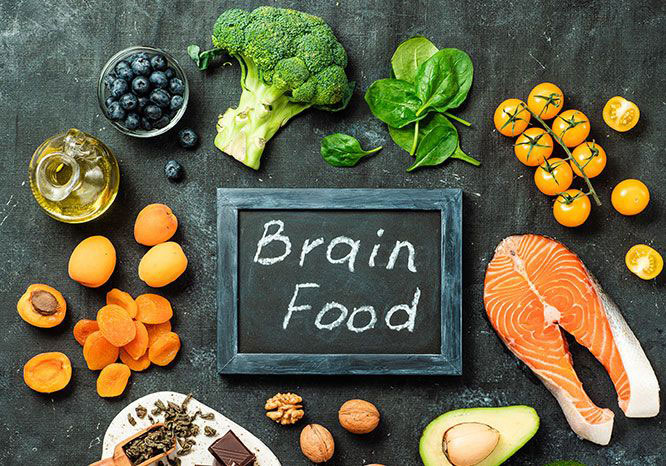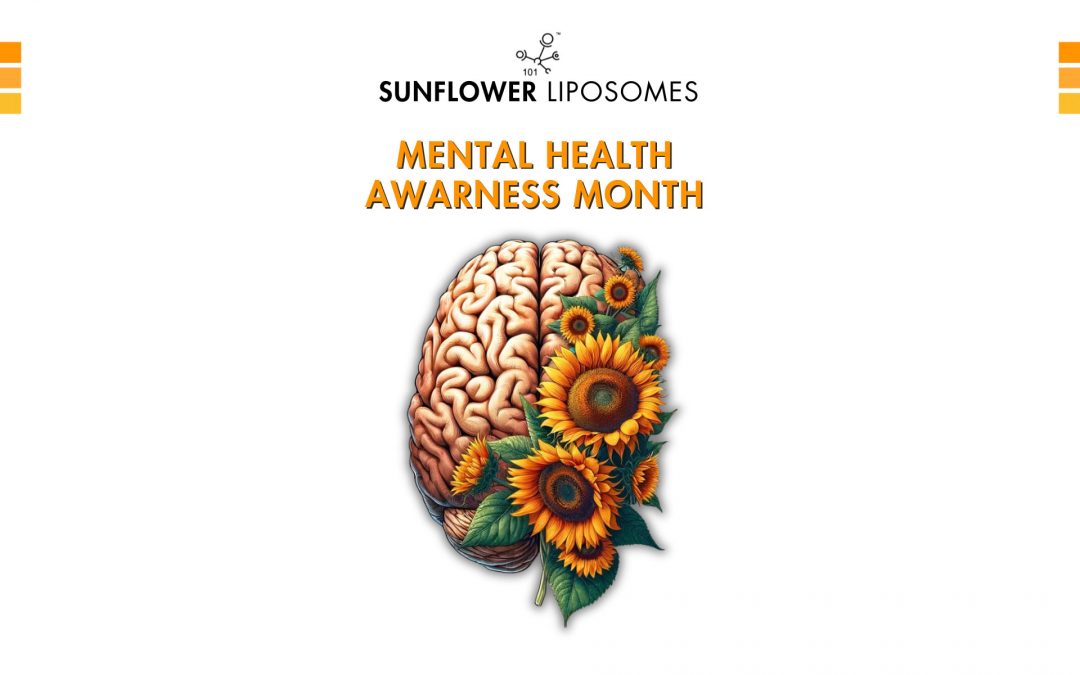Our brain, the powerhouse behind every thought, action, and decision, requires proper nourishment to function optimally. Just like a well-oiled machine, the brain thrives on a balanced diet rich in essential nutrients. Let’s explore some key brain-supporting nutrients and the foods that can help fuel our cognitive abilities.

1. Omega-3 Fatty Acids: Nourishment for Neurons
Omega-3 fatty acids, particularly EPA (eicosapentaenoic acid) and DHA (docosahexaenoic acid), are essential for brain health. These fatty acids are integral components of cell membranes in the brain and help support cognitive function, memory, and mood regulation.
Dietary Sources: Fatty fish like salmon, mackerel, and sardines are excellent sources of Omega-3s. Plant-based sources include walnuts, flaxseeds, chia seeds, and hemp seeds.
2. Antioxidants: Guardians Against Oxidative Stress
Antioxidants play a crucial role in protecting the brain from oxidative stress, which can damage brain cells and contribute to cognitive decline. Antioxidants help neutralise free radicals and reduce inflammation in the brain, promoting healthy brain aging and cognitive function.
Dietary Sources: Colorful fruits and vegetables are rich in antioxidants, including berries (blueberries, strawberries, raspberries), dark leafy greens (spinach, kale), tomatoes, carrots, and bell peppers. Other sources include nuts, seeds, and dark chocolate.
Vitamin C as one of the most powerful antioxidant, helps protect brain cells from oxidative stress caused by free radicals. This protection is crucial for preserving cognitive function and reducing the risk of age-related cognitive decline. Additionally, Vitamin C is involved in the production of neurotransmitters like serotonin and dopamine, which regulate mood and cognition.
Sources of Vitamin C: Citrus fruits (oranges, lemons, grapefruits), strawberries, kiwi, bell peppers, broccoli, and leafy greens.
Vitamin E: Defender of Brain Cells
Vitamin E is a powerful antioxidant that helps protect cell membranes in the brain from oxidative damage. It also plays a role in supporting cognitive function and may reduce the risk of age-related cognitive decline.
Dietary Sources: Nuts and seeds, particularly almonds, sunflower seeds, and hazelnuts, are excellent sources of Vitamin E. Other sources include spinach, broccoli, avocado, and vegetable oils (such as sunflower oil and olive oil).
Some of the best antioxidants for brain health include also:
Beta-carotene: Converts into vitamin A, which is essential for brain function and vision.
Flavonoids: Found in colorful fruits and vegetables, flavonoids have been linked to improved cognitive function and memory.
Resveratrol: Found in red grapes and berries, resveratrol has antioxidant and anti-inflammatory properties that support brain health.
Curcumin: Found in turmeric, curcumin has potent antioxidant and anti-inflammatory effects that may benefit brain function.
3. Vitamin D, the “Sunshine Vitamin”:
Vitamin D is crucial for brain health as it regulates neurotransmitter synthesis, supports nerve growth and function, and reduces inflammation. Adequate vitamin D levels may also play a role in mood regulation and the prevention of neurodegenerative diseases.
The primary source of vitamin D is sunlight exposure. Spending time outdoors in sunlight helps the body produce vitamin D naturally. However, dietary sources can also contribute to vitamin D intake, especially for those with limited sun exposure or living in regions with minimal sunlight.
Sources of Vitamin D: fatty fish (salmon, mackerel, tuna), fortified dairy products, egg yolks, and fortified cereals.
4. Vitamin B Complex: Energy Boosters for the Brain
The B-vitamin complex, including B6, B9 (folate), and B12, are essential for brain health as they support energy metabolism, neurotransmitter synthesis, and DNA repair in brain cells.
Dietary Sources: Whole grains (brown rice, oats, quinoa), legumes (beans, lentils), nuts, seeds, leafy greens, poultry, fish, eggs, dairy products, and fortified cereals are rich sources of B vitamins.
5. Choline: Building Blocks for Brain Cells
Choline is a nutrient that plays a vital role in brain development, memory function, and neurotransmitter synthesis. Adequate choline intake is particularly important during pregnancy and early childhood for optimal brain development.
Dietary Sources: Eggs are one of the best sources of choline. Other sources include liver, fish, poultry, beans, nuts, and cruciferous vegetables like broccoli and Brussels sprouts.
6. Magnesium for Memory Boost
Magnesium is a powerhouse nutrient involved in over 300 biochemical reactions in the body. It plays a crucial role in memory, stress reduction, mood regulation, sleep quality, and neuroprotection. Magnesium helps with learning and memory formation, regulates stress hormones, supports mood balance, promotes relaxation for better sleep, and protects brain cells from damage.
Dietary sources: Leafy greens like spinach and kale; Nuts and seeds such as almonds and pumpkin seeds; Whole grains like brown rice and oats; Legumes like beans and lentils; Avocado; Bananas; Dark chocolate
The Consequences of neglecting brain boosting nutrients
Ignoring these vital nutrients that support the brain can seriously impact mental clarity and cognitive function:
Brain Fog: A deficiency in omega-3 fatty acids and B vitamins may result in brain fog, making it difficult to focus and think clearly.
Decreased Concentration: Not consuming enough choline can impair concentration and focus, making it harder to stay engaged during tasks or study sessions.
Impaired Memory: Neglecting uridine and choline can affect memory formation and retention, making it challenging to recall information, especially during exams.
Fatigue: When essential nutrients are lacking, fatigue can set in, draining energy levels and reducing productivity.
To nourish your brain and support cognitive function, aim to incorporate a variety of nutrient-rich foods into your diet. Focus on whole, unprocessed foods, including plenty of fruits, vegetables, whole grains, lean proteins, and healthy fats.
By prioritising brain-supporting nutrients in your diet, you can fuel your mind and support overall cognitive health for years to come. So, let’s make every meal a brain-boosting opportunity and invest in our mental well-being.
When considering brain supplements, opt for high absorption liposomal forms to maximize your vitamin intake. Liposomal supplements are designed to enhance the absorption of nutrients, ensuring that you get the most out of your vitamins for optimal brain health.


Recent Comments